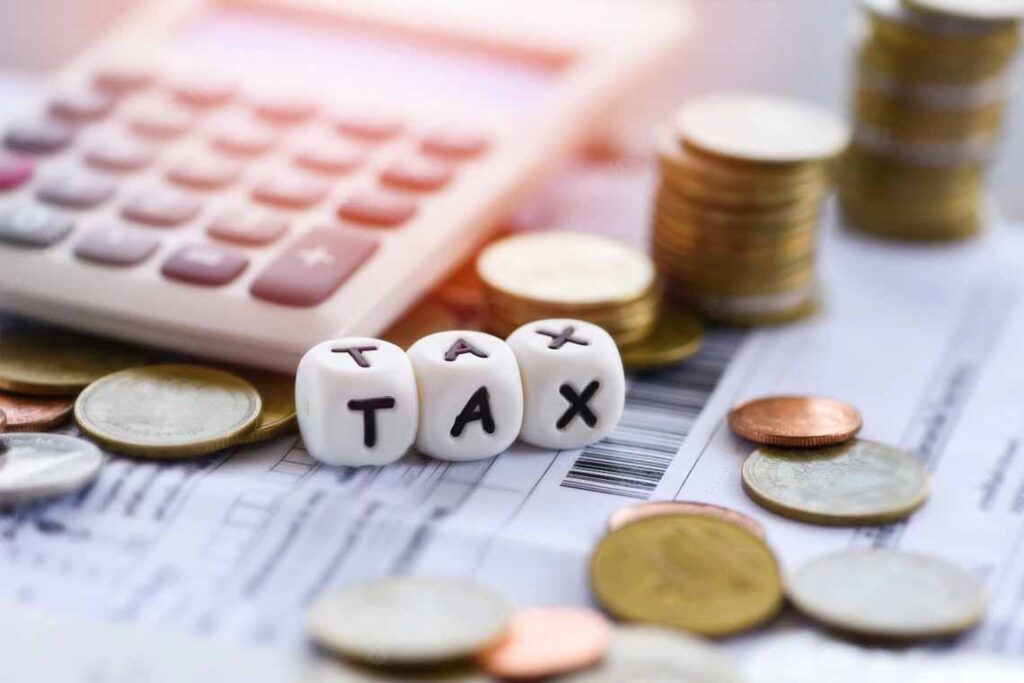1. Section 35(1A) relating to Filing Of Statement of any sum received by a Research Association, University, College, A Company, etc. amended w.e.f. AY 2021-221
(A) Reason for making Amendment
Section 35(1A) of the Act was inserted by the Taxation and Other Laws (Relaxation and Amendment of Certain Provisions) Act, 2020 w.e.f. 1-4-2021. It mandated the research association, university, college or other institution referred to in section 35(1)(ii) and (iia) or the company referred to in section 35(1)(iia) to file the statement of donations received by these entities front the donors. However, an inadvertent drafting error has crept in section 35(1). The present language reads that no deduction shall be allowed to the research association, university, college or other institution referred to in section 35(1), (ii) or (iii) or the company referred to in section 35(1)(iia), if such statement of donations is not tiled. However, that was not the intention of the law. The deduction claimed by the donor needs to be dis-allowed in such cases. In section 80G of the Act similar provisions were introduced by the Taxation and Other Laws (Relaxation and Amendment of Certain Provisions) Act 2020 w.e.f. 1-4-2021, whereby the deduction claimed by the donor under this section was disallowed in case the donee fails to furnish the statement of donations.
(B) Amendment made
Hence, the Finance Bill, 2022 has amended section 35(1A) to provide that the deduction claimed by the donor with respect to the donation given to any research association, university, college or other institution referred to in section 35(l)(ii) or (iii) or the company referred to in section 35(1)(iia) shall be disallowed unless such research association, university, college or other institution or company files the statement of donations.
2. Clarifications on Allowability of Expenditure under Section 37
[Explanation 3 inserted in section 37(1) w.e.f. 1-4-2022 i.e. AY 2022-23]
(A) Reason for making Amendment
Section 37 provides for allowability of revenue and non-personal expenditure (other than those failing under sections 30 to 36) laid out or expended wholly and exclusively for the purposes of business or profession. Explanation 1 to section 37(1) provides that if any expenditure incurred by an assessee for any purpose which is an offence or which is prohibited by law shall not be deemed to have been incurred for the purpose of business or profession and no deduction or allowance shall he made in respect of such expenditure.
The legal position is clear that the claim of any expense incurred in providing various benefits in violation of the provisions of Indian Medical Council (Professional Conduct, Etiquette and Ethics) Regulations, 2002 shall he inadmissible under section 37(1) being an expense prohibited by the law.
Further, some taxpayers are seen to be claiming deduction on expenses incurred for a purpose which is an offence under foreign law or for compounding of an offence for violation of foreign law. claiming that provisions of Explanation I to section 37(1) applies only to offences which are prohibited by the domestic law of the country. In some case this view has also been accepted by the tribunal, These judgments are also against the intention of the legislation as the legislation does not say that the Explanation 1 applies only to the violation of domestic law.
(B) Amendment made
In order to make the intention of the legislation clear and to make it free from any misinterpretation, the Finance Bill, 2022 has inserted the following Explanation 3 to section 37(1).
‘Explanation 3.—For the removal of doubts, it is hereby clarified that the expression “expenditure incurred by an assessee for any PUI1XSC which is an offence or which is prohibited by law” under Explanation 1, shall include and shall be deemed to have always included the expenditure incurred by an assessee,—
- for any purpose which is an offence under, or which is prohibited by, any law for the time being in force, in India or outside India: or
- to provide any benefit or perquisite, in whatever form, to a person. whether or not carrying on a business or exercising a profession, and acceptance of such benefit or perquisite by such person is in violation of any law or rule or regulation or guideline, as the case may be, for the time being in force, governing the conduct of such person; or
- to compound an offence under any law for the time being in force, in India or outside India.’
3. Clarification regarding treatment of Cess and Surcharge
[Explanation 3 inserted by the Finance Bill, 2022 under section 40(a)(ii) w.e.f. AY 2005-06]
(A) Reason for making Amendment
Section 40 of the Act specifics the amounts which shall not he deducted in computing the income chargeable under the head “Profits and gains of business or profession”. Section 40(a)(ii) provides that any sum paid on account of any rate or tax levied on the profits or gains of any business or profession or assessed at a proportion of or otherwise on the basis of any such profits or gains shall not be deducted in computing the income chargeable under the head ‘Profits and gains of business or profession”.
However, certain taxpayers are claiming deduction on account of ‘cess’ or ‘surcharge’ under section 40(a)(ii) claiming that ‘cess’ has not been specifically mentioned in the aforesaid provisions of section 40(a)(ii) and. therefore, cess is an allowable expenditure. This view has been upheld by Courts in a few judgments. Further, Courts are also relying upon the CBDT Circular No. 91 /58/66-ITJ(19) dated 18-05-1967.
The assessees are relying upon the decision of the Hon’ble Bombay High Court in the case of “Sesa Goa Limited v. JCIT” (2020) 117 taxmann.com and further on the decision of the Hon’ble Rajasthan High Court in the case of “Chambal Fertilizers & Chemicals Ltd v.JCIT”: D.B Income-tax Appeal No. 52/2018 decided on 31-07-2018.
From the above discussion it may be seen that the interpretations of two High courts and various ITATs arc against the intention ol legislature and not in line with the judgment of Hon’ble Supreme Court in the case of CIT v. K Srinivasan (1972) 83 ITR 346.
(B) Amendment made
Hence, in order to make the intention of the legislation clear and to make it free from any misinterpretation, the Finance Rill. 2022 has inserted the following Explanation 3 under section 40(a)(ii) w.r.e.1. 1-4-2005.
Explanation 3.— For the removal of doubts, it is hereby clarified that for the purposes of this sub-clause [viz, section 40(a)(ii)], the term “tax” shall include and shall be deemed to have always included any surcharge or cess, by whatever name called, on such tax.’
Consequential amendment [Sub-section (18) inserted in section 155 w.e.f. AY 2022-23]:
The following sub-section (18) has been inserted in section 155
Where any deduction in respect of any surcharge or cess. which is not allowable as deduction under section 40, has been claimed and allowed in the case of an assessee in any previous year, such claim shall be deemed to be under-reported income of the assessee for such previous year for the purposes of section 270A(3), notwithstanding anything contained in section 270A(6). and the Assessing Officer shall recompute the total income of the assessee for such previous year and make necessary amendment, and the provisions of section 154 shall, so far as may be, apply thereto, the period of four years specified in section 154(7) being reckoned from the end of the previous year commencing on the 1-4-2021:
Provided that in a case where the assessee makes an application to the Assessing Officer in the prescribed form and within the prescribed time, requesting for re-computation of the total income of the previous year without allowing the claim for deduction of surcharge or cess and pays the amount due thereon within the specified time, such claim shall not be deemed to he under-reported income for the purposes of section 270A(3).
Thus, the assessing officer has been given power to re-compute the total income and make necessary amendment. Consequent to that, section 154 and penalty provision under section 270A would apply. However, the penalty will not be imposed if the assesse makes an application to the AO requesting for re-computation of the total income of the previous year after disallowing the claim of deduction of surcharge or cess.
4. Clarification regarding Deduction on payment of Interest only on Actual Payment
[Explanations 3C, 3CA and 3D to Section 43B amended w.e.f. AY 2023-24]
(A) Reason for making Amendment
Section 43 B of the Act provides for certain deductions to be allowed only on actual payment. Explanation 3C. 3CA and 3D of this section provides that a deduction of any sum, being interest payable on loan or borrowing from specified financial institution /NBFC/Scheduled Bank or a Cooperative Bank under clause (d), clause (da). and clause (e) of section 438 respectively, shall he allowed if such interest has been actually, paid and any interest referred to in these clauses which has been converted into a loan or borrowing or advance shall not be deemed to have been actually paid.
However, certain taxpayers are claiming deduction under section 43B on account of conversion of interest payable on an existing loan into a debenture on the ground that such conversion is a constructive discharge of interest liability and, therefore, amounted to actual payment which has been upheld by several Courts.
Such interpretation is against the intent of legislation. The section was introduced to curb the mischief of claiming deduction by the assessee, without paying interest to financial institutions/NBFC/Scheduled Bank or A Co-Operative Bank. Section 43B makes a departure from other sections in the Act, as indicated by its non-obstante clause. Under the provisions of this section conversion of the outstanding interest liability into debentures is not an actual payment and cannot be claimed as deduction. In other words, a mercantile system of accounting cannot be looked at when a deduction is claimed under this section as actual payment would have to be made.
(B) Amendment made
In view of the above, the Finance Bill. 2022 has amended Explanation 3C, Explanation 3CA and Explanation 3D of section 43B to provide that conversion of interest payable under clause (d), clause (da). and clause (e) of section 43B, into debenture or any other instrument by which liability to pay is deferred to a Future date. shall also not be deemed to have been actually paid.











